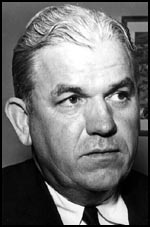A Quote by Asha Rangappa
After all, clemency is by nature outside the rule of law. When conferred upon those already convicted of crimes, it unravels the decision of citizen-jurors who found guilt beyond a reasonable doubt.
Related Quotes
A lawyer once told a jury that the person his client stood accused of having killed was about to walk through the courtroom door. When the jurors looked startled, the lawyer asserted that if those jurors had wondered, even for one second that the victim might appear, that belief constituted enough reasonable doubt for them to find his client innocent.
It would be one thing if we could say the system works [in Illinois], and that individuals followed procedures and were found innocent, but in fact in all the cases it was really a fluke ... We find persistent wrongdoing on the part of law enforcement. It's really sheer luck that those convicted of these [capital] crimes were exonerated in the end.
I don't think the law exists to arrive at the truth. If it did, we wouldn't have exclusionary rules, we wouldn't have presumptions of innocence, we wouldn't have proof beyond reasonable doubt. There's an enormous difference between the role of truth in law and the role of truth in science. In law, truth is one among many goals.
The rule of law does not guarantee freedom, since general law as well as personal edicts can be tyrannical. But increasing reliance on the rule of law clearly played a major role in transforming Western society from a world in which the ordinary citizen was literally subject to the arbitrary will of his master to a world in which the ordinary citizen could regard himself as his own master
It is more important that innocence be protected than it is that guilt be punished, for guilt and crimes are so frequent in this world that they cannot all be punished. But if innocence itself is brought to the bar and condemned, perhaps to die, then the citizen will say, "whether I do good or whether I do evil is immaterial, for innocence itself is no protection," and if such an idea as that were to take hold in the mind of the citizen that would be the end of security whatsoever.
The civil forfeiture law - if something so devoid of due process can be dignified as law - is an incentive for perverse behavior: Predatory government agencies get to pocket the proceeds from property they seize from Americans without even charging them with, let alone convicting them of, crimes. Criminals are treated better than this because they lose the fruits of their criminality only after being convicted.
Since natural law was thought to be accessible to the ordinary man, the theory invited each juror to inquire for himself whether a particular rule of law was consonant with principles of higher law. This view is reflected in John Adams' statement that it would be an 'absurdity' for jurors to be required to accept the judge's view of the law, 'against their own opinion, judgment, and conscience.'
Until recent times, absence of evidence for his [Jehovah's] existence has not been sufficient to rule him out. However, we now have enough knowledge that we can identify many places where there should be evidence, but there is not. The absence of that evidence allows us to rule out the existence of this God beyond a reasonable doubt.
The doctrines thus delivered we call the revealed or divine law, and they are to be found only in the holy scriptures.. are found upon comparison to be really part of the original law of nature. Upon these two foundations, the law of nature and the law of revelation, depend all human laws; that is to say, no human laws should be suffered to contradict these.

































